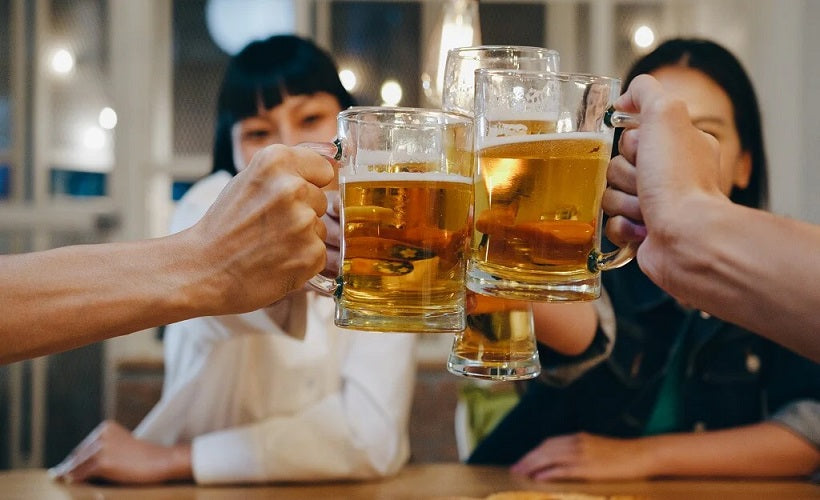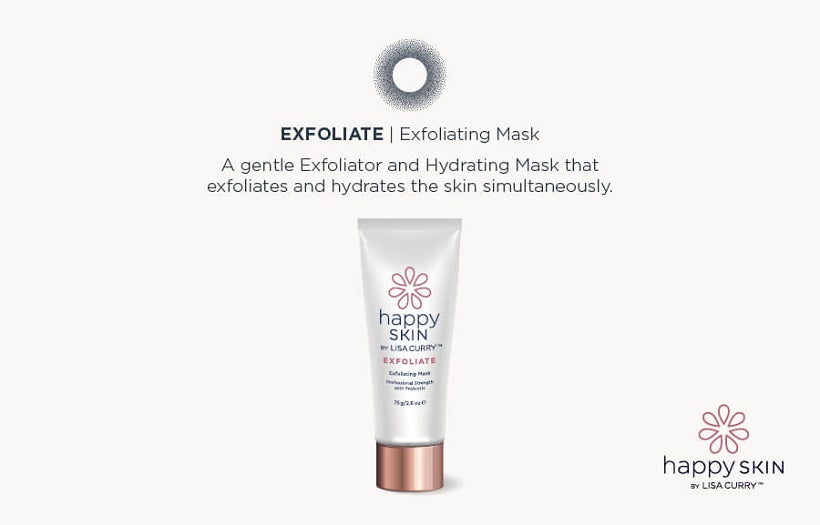Do you drink alcohol regularly? Perhaps you don’t, but you might binge drink on the weekends. Ask yourself how much alcohol you’re currently consuming. Then ponder for a moment on your current health and wellbeing.
Do you have any specific health goals – anything in particular you’d like to achieve when it comes to your physical, emotional or mental health? Did you know that it is very likely that your alcohol consumption will be a hindrance to you achieving these goals?
If you haven’t already, would you consider quitting drinking? If you’re not ready to completely ditch the booze, then it’s highly recommended that you at least cut down some of your alcohol intake.
Cutting out some is better than cutting out none!
If you are a heavy, regular drinker, ensure that you speak to your primary healthcare provider about quitting, as they will assist you with a plan to do so safely.
If you’re still unsure about reducing your alcohol, here are some facts about the health benefits you could reap from reducing your alcohol intake, or from stopping altogether.
More blissful slumber
After having a few drinks you may notice that falling asleep is quite easy. In fact, you may even be using alcohol as a sleeping aid. Alcohol is a central nervous system depressant and can help you get to sleep. However, the quality of sleep is poor as it will interfere with you achieving REM (rapid eye movement) sleep.
In order for alcohol to be detoxified and eliminated by your body, it firstly gets converted into a toxic and carcinogenic substance called acetaldehyde. Acetaldehyde can trigger your mast cells to release excessive amounts of histamine. You may be familiar with histamine as the chemical that causes symptoms of redness, or itchy skin.
With regards to alcohol, excess histamine release can result in you waking from an alcohol-induced sleep feeling hot, flushed, flustered, red, with a racing heartbeat. Or simply feeling wakeful and alert through the night when you should be in deep sleep. If you are already struggling with hot flushes, do you really want to exacerbate these unpleasant symptoms?
By cutting out or cutting down your alcohol consumption, you may find that it is easier to fall asleep, stay asleep, and wake up feeling more refreshed.

A leaner body
Did you know that alcohol can hinder fat loss? If you’re putting in the effort all week to eat well, de-stress, and move your body, but you’re bingeing on the weekends, this could cause major setbacks!
Firstly, by drinking alcohol, you are literally guzzling down calories and yes, at the end of the day, if you are trying to get leaner – calories do count. Each gram of alcohol contains 7 calories and alcoholic drinks are generally nutritionally depleted. There is no nutritional value in drinking these beverages.
Many alcoholic drinks are high in sugar (cocktails, liquor, craft beer) and can contribute to blood sugar peaks alongside big insulin spikes, too. This can lead to more fat storage, especially around your belly area, and blood sugar dysregulation. Over time, the constant yo-yoing of blood sugar and insulin puts you at risk of diabetes.
Alcohol also drives the body’s production and release of the stress hormone cortisol, which can contribute to your body storing more fat.
So consider the PHYSICAL benefits you may reap from cutting down OR cutting out your alcohol consumption!
Improved mood
GABA and glutamate are two brain chemicals that act very differently. GABA slows things down and makes you feel calm. It is produced from the conversion of glutamate, which is an excitatory neurotransmitter. Glutamate speeds things up in your central nervous system, and an imbalance between GABA and glutamate can cause feelings of anxiety.
We know that there is disharmony between the balance of glutamate and GABA when alcohol is consumed. In fact, alcohol can bind to the GABA receptors in the brain, which mimics the action of GABA. As GABA is calming, it slows down the activity of your nervous system. This is what causes someone to feel sleepy or relaxed when they drink alcohol. However, if you are using alcohol to cope with anxiety or a sleep issue, this must be addressed properly!
Continuing to expose the GABA receptors in the brain to regular and constant alcohol will desensitise your GABA receptors over time. As it is alcohol and not GABA binding to the GABA receptors in the brain, the body thinks it has a good supply of GABA and doesn’t produce/convert it from glutamate. So, you end up with low GABA and high levels of glutamate.
What then happens when the ‘band aid’ (alcohol) is taken away? You’re exposed to plenty of glutamate and not enough GABA. This is when you may notice increased stress, anxiety, and a general sense of overstimulation. Essentially the alcohol which was acting like a buffer to mimic the effects of GABA has been removed, and you are now feeling the symptoms of excess glutamate levels.
Ensuring good levels of GABA are produced when you cut down or cut out alcohol is essential in avoiding feelings of anxiety. You can do this by providing your body with the nutritional cofactors it needs to convert glutamate into GABA with Happy Calm.
Hormonal balance
Exposure to alcohol interferes with communication between your brain and your adrenal glands, causing an increase in the production of your stress hormones. The effects of excess cortisol are many. Among others, these include:
- increased fat storage, especially around the abdomen
- lower testosterone
- cravings for energy-dense sweet and salty foods due to spiking insulin
Alcohol consumption is linked to reproductive issues in both women AND men. To be more specific, in women we may see issues such as irregular menstrual cycles, lack of ovulation, spontaneous miscarriages, low ovarian reserve, and early menopause. Studies show that fertility can be decreased in women who drink as few as five or less alcoholic drinks per week.
In a study looking at the effects of alcohol on women, heavy drinkers were classed as those who drank approximately 7 drinks per day. These women were more likely to have high prolactin levels due to alcohol affecting the pituitary gland in the brain. High prolactin can cause a whole range of fertility issues and decrease dopamine levels, your ‘feel good’ brain chemical.
Social drinkers in the same study were classed as women who drank approximately 3 drinks per day, and these women were more likely to have anovulatory cycles (no ovulation). When you don’t ovulate, you would have absent or irregular periods.
Even if you are not a regular drinker but you binge drink, this might also affect your fertility. A study investigating women who binge drink twice per week or more revealed they had a lower ovarian reserve.

Essentially, alcohol will affect the communication between the brain and the ovaries and testes. At the end of the day, it is the job of these reproductive organs to produce sex hormones. Simply put, they cannot work effectively if alcohol is interfering with the process.
One very important enzyme involved in the metabolism and balance of oestrogen and testosterone in both women and men is aromatase. Aromatase activity in the liver can be increased by alcohol and, as a result, more oestrogen is produced. Aromatase is responsible for converting testosterone into oestrogen. This is the piece of the puzzle that is responsible for high oestrogen in men AND women who drink alcohol.
Men may experience low libido, depression, low bone mass, gynaecomastia, and poor sperm health as a result of increased aromatase activity, with oestrogen skyrocketing as their testosterone levels dwindle.
Symptoms of high unopposed oestrogen present as PMS, sore breasts, heavy painful periods, and excess belly fat in women. In men, they present as gynaecomastia, low muscle mass, high fat mass, and high belly fat. So if you have any of these and are still drinking alcohol, I hope this has deterred you in an attempt to achieve better hormone balance!
Ladies, if you are trying to correct any hormonal imbalances and you drink alcohol, you absolutely must support your endocrine system with Happy Hormones.
You should also be supporting your body’s alcohol metabolism and detoxification pathways. Check out how Happy Liver can help.
Summary
There are many benefits to reducing your alcohol intake, especially if you are not ready to stop drinking alcohol altogether. Supporting your body with Happy Liver, Happy Calm and Happy Hormones can assist with aspects of physical and mental health which may be affected by alcohol consumption. If you are a heavy regular drinker, always consult with your primary healthcare provider to discuss a plan to safely stop drinking alcohol.
REFERENCES
Jensen et al. Does moderate alcohol consumption affect fertility? Follow up study among couples planning first pregnancy. BMJ. 1998;317:505–510.
Jewett BE, Sharma S. Physiology, GABA. [Updated 2020 Aug 29]. In: StatPearls [Internet]. Treasure Island (FL): StatPearls Publishing; 2021 Jan.
Muti et al. Alcohol consumption and total estradiol in premenopausal women. Cancer Epidemiol Biomarkers Prev. 1998 Mar;7(3):189-93.
Li N, Fu S, Zhu F, Deng X, Shi X. Alcohol intake induces diminished ovarian reserve in childbearing age women. J Obstet Gynaecol Res. 2013 Feb;39(2):516-21.
Rachdaoui N, Sarkar DK, Pathophysiology of the Effects of Alcohol Abuse on the Endocrine System, Alcohol Res. 2017; 38(2): 255–276.
Rachdaoui N, Sarkar DK. Effects of alcohol on the endocrine system. Endocrinol Metab Clin North Am. 2013;42(3):593-615.
Purohit V. Can alcohol promote aromatization of androgens to estrogens? A review. Alcohol. 2000 Nov;22(3):123-7.
Van Heertum, K., Rossi, B. Alcohol and fertility: how much is too much?. Fertil Res and Pract 3, 10 (2017).










Leave a comment
This site is protected by hCaptcha and the hCaptcha Privacy Policy and Terms of Service apply.